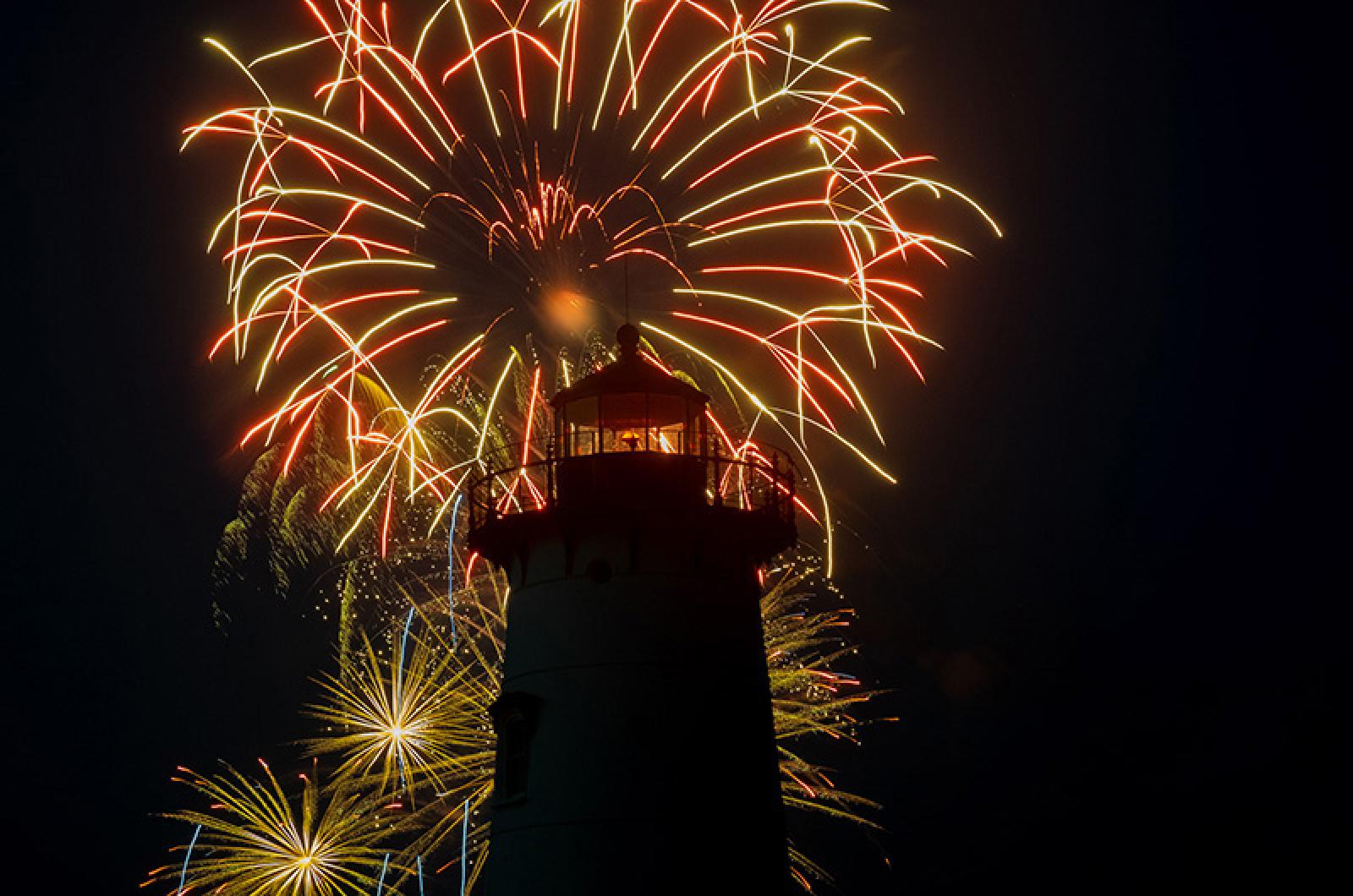“The Edgartown Fireworks have been cancelled for the second year in a row,” complained some Island residents.
But if our 14-year-old Labrador Retriever, Henry, were able to imagine the future and convey his feelings, his reaction would be “Thank the Lord that I won’t have to suffer through the terror of fireworks again!”
Henry wouldn’t be alone in feeling relief. Every July 4th here on Martha’s Vineyard, countless dogs, cats and other pets, farm animals, and birds are terrorized by the loud explosions.
And it’s not just our furry and feathered friends who may be traumatized. Veterans suffering from PTSD, survivors of gun violence, adults with disabilities, and children on the autism spectrum routinely suffer on July 4th.
The cancellations in consecutive years may well have saved lives. As the New York Times reported, “In 2011, 5,000 red-winged blackbirds fell out of the sky in Beebe, Ark., after fireworks celebrations on New Year’s Eve, possibly because the loud noises led them to fly into chimneys, houses and trees. Loud fireworks also scare larger mammals like deer and coyotes out into roads, where they can get hit by cars, said Lisa Horn, the executive director of West Sound Wildlife Shelter in Washington State.”
And loud fireworks can lead to hearing loss for any of us, although children are particularly at risk. The pain threshold for sound is 120 decibels, and fireworks typically are above 150 decibels and can reach 170 or more.
Most pet owners understand how terrifying the loud and seemingly random explosions are. Henry, our Lab, is normally the most mellow creature, but he quivers uncontrollably at the sound of fireworks. As darkness approaches on the 4th, we bring him into our laundry room, run the drier with a load of sneakers, and turn up the radio, in hopes that he won’t be traumatized. It doesn’t work, unfortunately, because his hearing is many times more acute than ours. Dogs can hear up to 60,000hz while humans only hear 20,000hz.
Henry would run if he could because those loud noises cause a racing heart, a surge of adrenalin, and the need to flee, often with unpleasant consequences. Pets may be lost for days, eventually turning up in shelters — if they aren’t hit by cars. “July is one of our biggest months of the year for stray animals, specifically around the days around the Fourth of July,” according to Janna Haynes of the Sacramento, Calif. County Animal Shelter.
The good news is that there is a simple solution to this unnecessary trauma: so-called silent fireworks. Writing in The Hill one year ago, environmentalist Jane Desmond noted that “Silent fireworks aren’t a new invention. In fact, they have been around for a long time as part of regular fireworks displays, including the comet display that shoots into the air with a long sparking tail, or the flying fish whose scattering sparkles swim out from a silent boom like little tadpoles. These fireworks actually display the most stunning colors, more so than big explosions.”
Silent fireworks, which are more accurately described as low noise, deliver more impressive cascading colors without the daunting decibels and startling explosions that traumatize so many humans and other species.
Supporters of noisy fireworks say that the loud sounds are an essential part of the magic of July 4th. “Silent fireworks would be kind of like watching fireworks on a computer screen,” Julie Heckman, the executive director of the American Pyrotechnics Association told the New York Times. “It wouldn’t be the real experience.”
Perhaps not, but as Desmond noted in her op-ed, “Towns in Europe, Canada, and the U.K., are leading the way, with some, like Collecchio, Italy, even banning loud fireworks, and others choosing low-noise alternatives. In the U.S., Costa Mesa, California, has already switched the city-wide display to low-noise pyrotechnics. Although it used to be harder to find low-noise fireworks, now they are readily available through companies like Phantom Fireworks with commercial distribution across the country.”
After two years without an explosive July 4th in Edgartown, next July might be the perfect time to celebrate with low noise ‘silent’ fireworks. No one will be able to complain that “The fireworks were better last year” because there was no ‘last year’! Instead, July 4th, 2022, could create new pleasures and new memories for an audience that will be a mixture of new and old...and bring relief to veterans, gun violence survivors, children, pets and wildlife.
John Merrow lives in Edgartown with his wife Joan Lonergan and their Labrador retriever Henry.




Comments (1)
Comments
Comment policy »